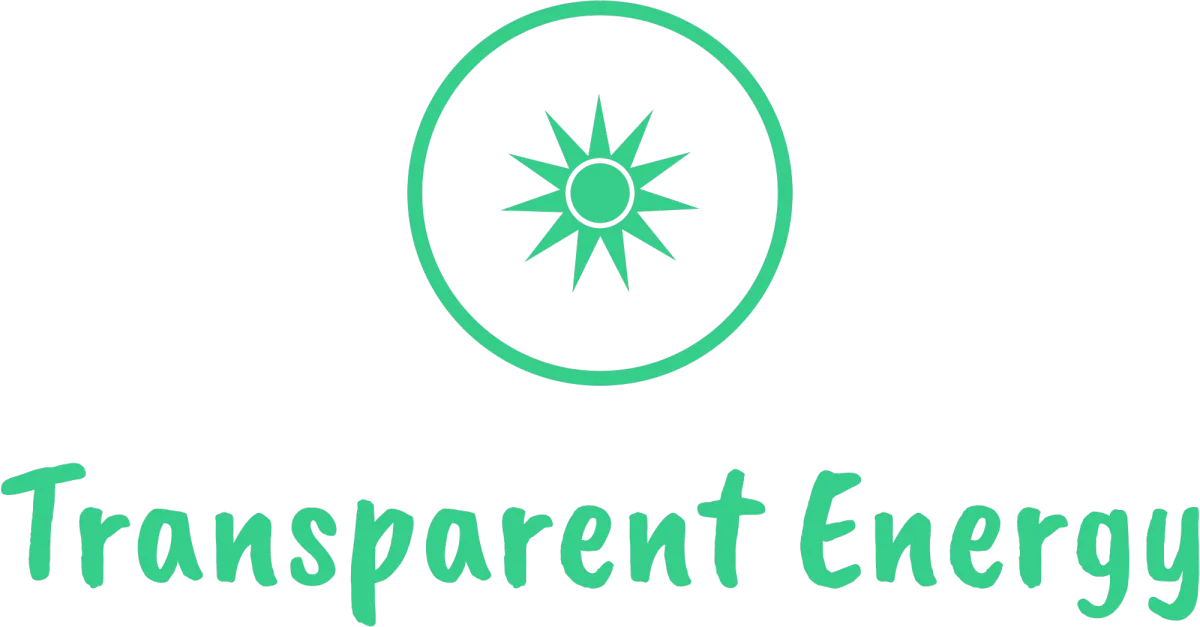
All Your Questions: Answered
Are you tired of unpredictable utility bills that fluctuate month to month? One month it's $200, the next it's $400—whatever the utility company decides to charge, you’re stuck paying. With a solar system, you can break free from the ever-increasing costs of electricity and take control of your energy expenses.
Cash Purchase Benefits:
If you’re in a position to pay cash for your solar system, you’ll maximize your savings right away. By eliminating your utility bill, you’re free from monthly energy costs and shielded from rising electricity rates. Every year, your solar system will pay for itself by cutting your energy expenses, providing you with years of free power once the system is paid off.
Financing Advantages:
For those who prefer to finance, solar energy systems offer an incredibly affordable option. Financing allows you to spread the cost of your solar system over a term of up to 25 years. With competitive interest rates and flexible payment plans, your monthly payment can often be lower than your current utility bill.
Instead of paying whatever the utility company demands, you can lock in a fixed, manageable monthly payment. Choose a payment that fits your budget and gain control over your power costs—no more guessing, no more surprises.
Secure Your Future Energy Rates:
The cost of electricity has been steadily rising, and there’s no sign of that trend slowing down. By investing in solar now, you can lock in a rate for the next 25 years, ensuring long-term savings and peace of mind. Imagine never having to worry about skyrocketing utility rates again. Whether you pay cash or finance, solar power sets you up for a stable financial future.
Take control of your energy bills today and start saving with a solar system.
Frequently Asked Questions
How much does a solar system cost?
The cost of a solar system depends on the system's size, your energy usage, and your location. Typically, a residential solar system can cost anywhere from $10,000 to $30,000 before incentives or rebates. Financing options are available to help make solar more affordable. On average, solar panels cost around $2.75 per watt in the U.S. before incentives. Solar panels also come in different sizes, such as 380W, 400W, and 410W, which can impact the total system cost.
Do solar panels work in cloudy or rainy weather?
Yes, solar panels still generate electricity on cloudy or rainy days, though they are most efficient in direct sunlight. Depending on the cloud cover, they can produce about 10-25% of their maximum output.
How long do solar panels last?
Solar panels are extremely durable and typically come with a 25- to 30-year warranty. After 25 years, they still produce around 80% of their original efficiency.
What incentives are available for solar installations?
There are federal, state, and sometimes local incentives for solar installations. The federal solar tax credit allows you to deduct 30% of the cost of your system from your federal taxes. Additionally, there may be state rebates, property tax exemptions, and net metering programs available.
Will installing solar increase my home’s value?
Yes, studies show that homes with solar systems typically sell for more than comparable homes without solar. Zillow studies show home value goes up by 4%. In addition, solar can make your home more attractive to buyers who want long-term energy savings.
Can I add more panels to my solar system later?
Yes, most solar systems are designed to be expandable. If you find you need more power in the future, additional panels can usually be added. However, it’s important to make sure your inverter and system components can handle the additional capacity.
How do I know what size solar system I need?
The size of your solar system depends on your energy consumption, which can be found on your utility bills. A solar professional can analyze your usage and design a system that meets your specific energy needs.
Will solar panels damage my roof?
No, solar panels will not damage your roof when installed correctly. In fact, they can protect the roof from weather elements. Installers use specialized mounting equipment to ensure a secure, leak-free installation.
What happens if I sell my house?
If you own your solar system, it can add value to your home and make it more attractive to buyers. If the system is financed, you can either pay off the loan or transfer the loan to the new homeowner.
Do solar panels work at night?
No, solar panels do not generate electricity at night. You will draw power from the grid or your battery storage system during nighttime hours. With net metering, you can offset the energy used at night with the excess energy generated during the day.
How do solar panels perform in extreme weather conditions (snow, hail, wind)?
Solar panels are built to withstand extreme weather, including heavy snow, hail, and high winds. Most panels are tested for hail impact and have wind ratings. In areas with snow, panels are typically installed at an angle to allow snow to slide off, and their dark surface helps absorb heat to melt the snow faster. However, if you live in an area with severe conditions, it’s important to choose high-quality, durable panels.
What is solar panel degradation and how does it affect my system?
Solar panels degrade slightly over time, losing a small percentage of their efficiency each year. The average degradation rate is about 0.5% per year, meaning after 25 years, your panels will still produce around 87.5% of their original output. This is normal and expected, and warranties typically cover performance guarantees over this period.
What is the difference between a string inverter and micro-inverters?
A string inverter converts the energy from all panels in a system at once, whereas micro-inverters convert the energy from each panel individually. Micro-inverters are ideal for installations where shading or different roof angles are an issue, as they prevent a drop in performance across all panels if one panel is affected.
What impact will solar have on my homeowner’s insurance?
Most homeowner’s insurance policies cover solar panels under the dwelling portion of your policy, but it’s a good idea to confirm this with your insurance provider. In some cases, you may need to increase your coverage to account for the value of your system.
How does solar work with electric vehicles (EVs)?
Installing solar panels can greatly reduce the cost of charging an electric vehicle. By pairing your solar system with an EV charger, you can charge your vehicle using renewable energy, reducing your reliance on grid electricity and cutting your fuel costs.
How long will it take for solar to pay for itself?
Solar systems typically pay for themselves in 5 to 10 years through energy savings and tax incentives. This can vary depending on your location, energy consumption, and whether you finance the system or pay upfront.
What happens if I generate more energy than I use?
If your solar system produces more energy than you consume, the excess electricity is sent back to the grid. Through a process called net metering, your utility company may credit you for that extra energy, helping offset future bills.
Do I still receive an electricity bill if I have solar panels?
Yes, but it will be significantly reduced, especially if your system is sized correctly. You’ll still be connected to the grid for times when your system isn’t producing enough electricity, like at night or during heavy usage.
How does solar financing work?
Solar financing allows you to spread the cost of your solar system over time, usually up to 25 years. Monthly payments are often lower than what you currently pay for electricity, giving you instant savings.
What maintenance is required for solar panels?
Solar panels require very little maintenance. Cleaning them a few times a year to remove dust and debris is usually all that’s needed. Most systems come with monitoring software that alerts you if there’s an issue. Additionally, warranties cover maintenance for equipment failures.
Do solar panels work during a power outage?
No, Standard grid-tied solar systems will shut down during a power outage for safety reasons. However, if you have a solar system with battery storage, you can continue to power essential appliances during a blackout.
How long does the installation process take?
Solar installations typically take 1 to 3 days once all permits and approvals are in place. However, the entire process, including permitting and utility approval, can take several weeks to a few months depending on your location.
Do I need to replace my roof before installing solar?
If your roof is old or in need of repair, it’s a good idea to address those issues before installing solar panels. Solar panels last 25+ years, so it’s best to ensure your roof is in good condition before installation to avoid the need to remove and reinstall the panels later.
Can I install solar panels myself?
While it’s technically possible to install solar panels yourself, it’s highly recommended to have a professional do the installation. Incorrect installation can lead to reduced efficiency, system damage, or voided warranties. Professional installers ensure everything is up to code and working safely.
How does solar impact the environment?
Solar energy is one of the cleanest, most sustainable sources of power. By switching to solar, you reduce your carbon footprint, decrease reliance on fossil fuels, and contribute to a healthier planet by lowering greenhouse gas emissions.
Can I go completely off-grid with solar?
While it's possible to go off-grid, it requires a solar system with battery storage and potentially a backup generator to cover periods when the sun isn’t shining. Going off-grid is more expensive than staying grid-tied and is typically done in remote locations where connecting to the grid is not feasible.
How does the shade from trees or buildings affect solar panel performance?
Shading can significantly reduce the efficiency of solar panels, as even partial shading can affect the output of the entire system. However, modern technology, such as micro-inverters or power optimizers, can help minimize the impact of shading by allowing each panel to operate independently.
How do I monitor the performance of my solar system?
Most solar systems come with monitoring software that allows you to track your energy production in real-time. You can access this data via a smartphone app or online portal, enabling you to spot any issues and ensure your system is performing as expected.
What happens when I need to repair or replace my roof after solar is installed?
If your roof needs repairs or replacement after your solar panels are installed, the panels will need to be temporarily removed. Many installers offer this service or work with roofing companies to coordinate the removal and reinstallation of the panels. It’s a good idea to ensure your roof is in good shape before going solar.
Can I install solar on a home with an HOA (Homeowner’s Association)?
Many HOAs are subject to "solar access laws" that prevent them from outright prohibiting solar installations. However, they may have guidelines on where panels can be placed and what they should look like. It’s important to review your HOA’s rules before proceeding with your installation.
